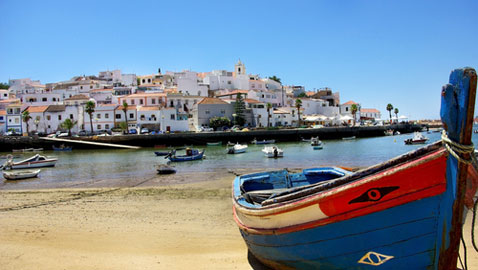The gloom hanging over Portugal’s economy doesn’t seem to have deterred British buyers, who are keen to pick up a bargain, says Clare Nessling, director of overseas mortgage specialist Conti
Portugal may still be in recession and stuck with the label of one of Europe’s so-called PIGS (Portugal, Ireland, Greece and Spain), but it has managed to escape the type of property crash experienced by Spain. This is due to its tighter lending conditions and stricter planning laws which have helped to prevent over-development. Tourism in Portugal is strong too, particularly in the Algarve and increasingly along the likes of the Silver Coast, so property rental opportunities are abundant.
We’ve seen an increase in the number of people enquiring about the country over the last two months, and it’s currently third on our list of hot spots, after France and Spain. It’s also the fourth most popular country in the most recent Rightmove Overseas search report, with The Algarve in particular rising in popularity as people look to buy in areas they’re familiar with.
A boost for British buyers has been the growing strength of the pound, which has been rising against the euro to levels not seen since autumn 2008. At the time of writing, £1 is worth around €1.24, and although this is still less than when the euro was launched, it’s a big improvement on this time last year when you could only get €1.10. And for someone with £200,000 to spend, it means that they’ve got around €28,000 more in the kitty than they did a year ago.
If any of your clients are interested in buying property abroad, there are many bargains to be had in Portugal, particularly where developers are struggling to sell new properties, and with distressed property, they may be able to do some further haggling. Falling demand for property from the domestic market means that demand from tenants in Portugal is continuing to rise, and the number of overseas buyers looking for a buy-to-let investment is also, therefore, on the increase. This is particularly the case in traditional tourist areas which have retained their rental popularity while falling significantly in price.
Another easy draw is Portugal’s great climate, but accessibility is also contributing to its popularity, with a wide choice of flights to Lisbon, Oporto and Faro from the UK.
The mortgage process
When it comes to finance, while lenders have reduced their mortgage portfolios and fixed rate deals have become rare, you can still borrow up to 75 per cent of the value of the property (although 80 per cent is possible) and rates are very reasonable, starting from around 5 per cent. And there’s plenty of choice – Conti currently works with a selection of banks in Portugal, so there’s some healthy competition.
Mortgage terms are typically 25-30 years, the minimum loan amount is €50,000, and total mortgage payments and other financial commitments must not exceed 35 per cent of the buyer’s net monthly income.
As with any other overseas property purchase, it’s important that your clients determine how much they can spend before agreeing to anything. An ‘Approval in Principle’ (AIP), will do just that – it’ll tell them exactly how much they can borrow and what price range they can realistically consider when conducting their property search. It will also prove that they’re a serious buyer and could make them better placed to negotiate price. And it costs nothing.
Prospective buyers must also seek the right advice, and go through the same process that they’d follow if they were buying a property in the UK. This includes taking independent advice from an English-speaking lawyer who is not connected to their seller, estate agent or property developer.
Finally, they need to bear in mind that bills don’t end at the asking price. Lawyer’s fees, local and national taxes, insurance, and so on, can often add at least a further 10 per cent to the cost of their acquisition in Portugal.
If you haven’t yet considered the overseas mortgage market as an additional revenue stream, it’s a good time to do so. Bargain prices, low interest rates and a weaker euro mean that buying property abroad may never have been more affordable. There’s no doubt that demand for overseas mortgages has declined since the peak we saw almost five years ago, but the market is still alive and well. Commission rates start at 25 per cent per case, but higher levels can be achieved when volume increases or through membership of a qualifying group or network.
